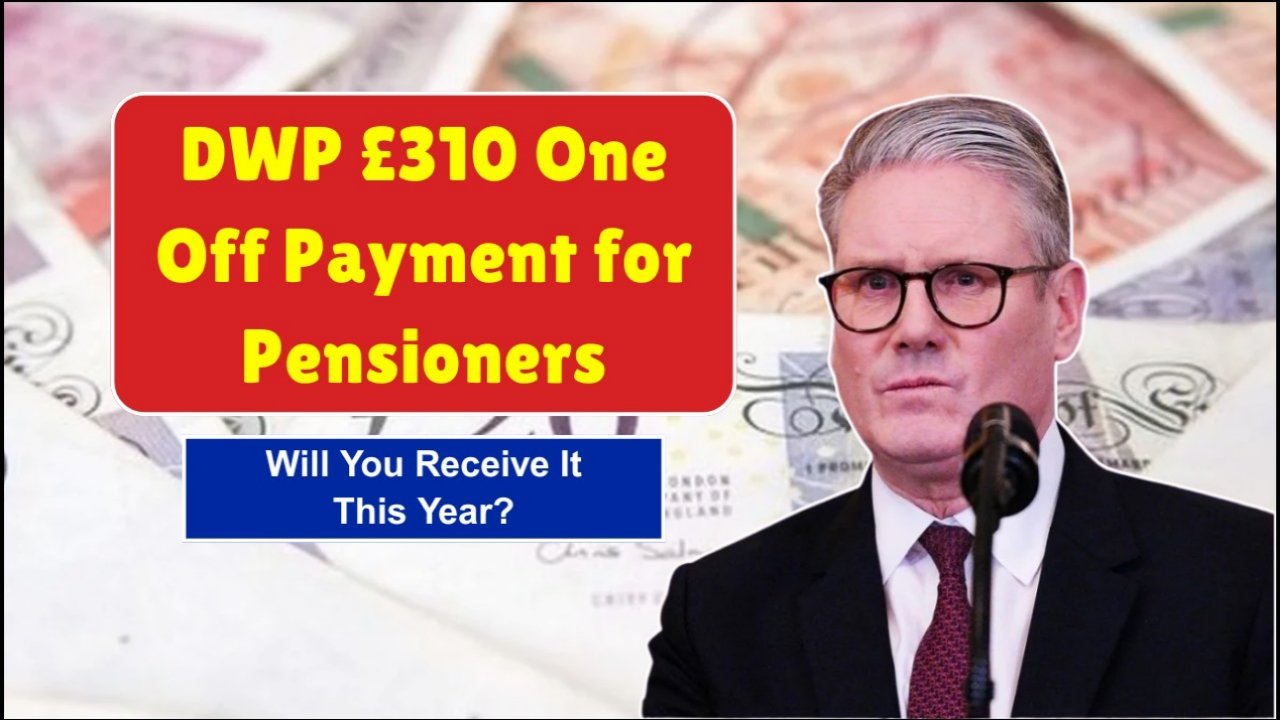Hello Friends, if you are a UK pensioner, there is an important update regarding a £310 one-off cash payment for 2025. The government has announced this payment to help older citizens cope with rising living costs, including energy bills and essential expenses. In this article, we will guide you through who qualifies, how to claim, and when the payment will be made.
What Is The £310 One-Off Payment?
The £310 one-off payment is a temporary government support scheme aimed at pensioners who receive certain state benefits. It is designed to provide immediate financial relief and is separate from your regular state pension or Attendance Allowance. This payment will be made directly to eligible individuals without the need for a complicated application process for most people.
Who Is Eligible For The Payment?
Eligibility for the £310 payment is primarily based on your pension and benefit status. Generally, pensioners who receive State Pension, Pension Credit, or other means-tested benefits qualify. To be eligible:
- You must be over the State Pension age.
- You must be receiving qualifying benefits such as Pension Credit or Attendance Allowance.
- You must live in the UK permanently.
It’s important to note that not all pensioners automatically qualify. Those who are not receiving these benefits may need to check if they are eligible under specific local schemes or emergency government provisions.
How The Payment Will Be Made
The government has confirmed that the £310 payment will be delivered directly into your bank account for most eligible pensioners. For those who do not have a bank account, payments may be issued via cheque or other secure methods. Typically, the Department for Work and Pensions (DWP) will calculate eligibility automatically, and most recipients will receive the payment without needing to apply.
Timeline For Payment
Officials have stated that the £310 one-off payment will begin to roll out from early 2025, and most pensioners should receive it by spring 2025. Payments are expected to be made in a single installment, reducing the need for multiple administrative processes. If you do not receive your payment by the expected date, it is recommended to contact the DWP or your local authority for clarification.
How This Payment Helps Pensioners
Rising costs of living, particularly energy bills, have made it more challenging for older people to manage their finances. The £310 payment is intended to provide extra support to cover essential expenses, such as heating, groceries, or medical needs. For many pensioners, this one-off payment will act as a temporary relief during periods of high inflation or unexpected costs.
Checking If You Qualify
If you are unsure whether you qualify, you can check your status by:
- Visiting the official GOV.UK website for information on pensioner payments.
- Calling the DWP helpline and providing your National Insurance number and benefit details.
- Consulting your local Citizens Advice Bureau for guidance on eligibility and payment claims.
It is important to confirm your eligibility to ensure you do not miss out on this one-off payment.
Common Questions About The Payment
Many pensioners have questions about how this scheme works. Some common queries include:
- Do I need to apply?
For most eligible pensioners receiving qualifying benefits, the payment is automatic. - What if I recently started receiving benefits?
New claimants may need to wait for DWP records to update, but payments should be made retroactively if eligible. - Is it taxable?
No, the £310 one-off payment is not subject to income tax.
Impact On Other Benefits
The one-off payment will not affect your regular state pension or other benefits such as Pension Credit or Attendance Allowance. It is considered a separate, temporary payment designed solely to provide immediate financial support. This ensures that you will continue to receive your normal benefits without any deductions due to this additional payment.
How To Receive The Payment Faster
While most payments are automatic, there are steps you can take to ensure you receive it promptly:
- Ensure your bank account details are up to date with the DWP.
- Respond promptly to any correspondence from your local authority or DWP.
- Keep your contact information current, including your address and phone number, to avoid delays in receiving notifications.
What To Do If You Don’t Receive The Payment
If you do not receive the £310 one-off payment by the expected date, you should:
- Contact the DWP helpline for clarification.
- Check your bank account details and ensure they are correct with the DWP.
- Seek advice from Citizens Advice or a local support organisation to check for errors or missed eligibility.
Why The Government Introduced This Payment
The UK government introduced the one-off £310 payment to support pensioners during a time of financial uncertainty. With energy bills and living costs rising, this payment acts as a safeguard to ensure older citizens can maintain their standard of living. It also reflects the government’s commitment to supporting those most vulnerable to inflation and cost-of-living pressures.
Tips For Managing The Payment
Many pensioners may wonder how best to use the one-off payment. Some helpful tips include:
- Prioritise essential bills such as energy, water, or rent.
- Consider grocery budgeting to stretch the payment across multiple weeks.
- Use part of the payment for health-related needs, including medication, mobility aids, or minor home adjustments.
By planning wisely, the £310 payment can provide substantial support over a longer period rather than being spent immediately.
Final Thoughts
The £310 one-off cash payment in 2025 is a crucial financial support for UK pensioners. Whether you rely on it for daily expenses, energy bills, or unexpected costs, it provides welcome relief in challenging times. If you are over State Pension age and receive qualifying benefits, make sure to check your eligibility and update your information with the DWP to ensure you receive this payment without delay.
This payment highlights the importance of staying informed about government support schemes and taking advantage of opportunities designed to help you manage your finances effectively.

